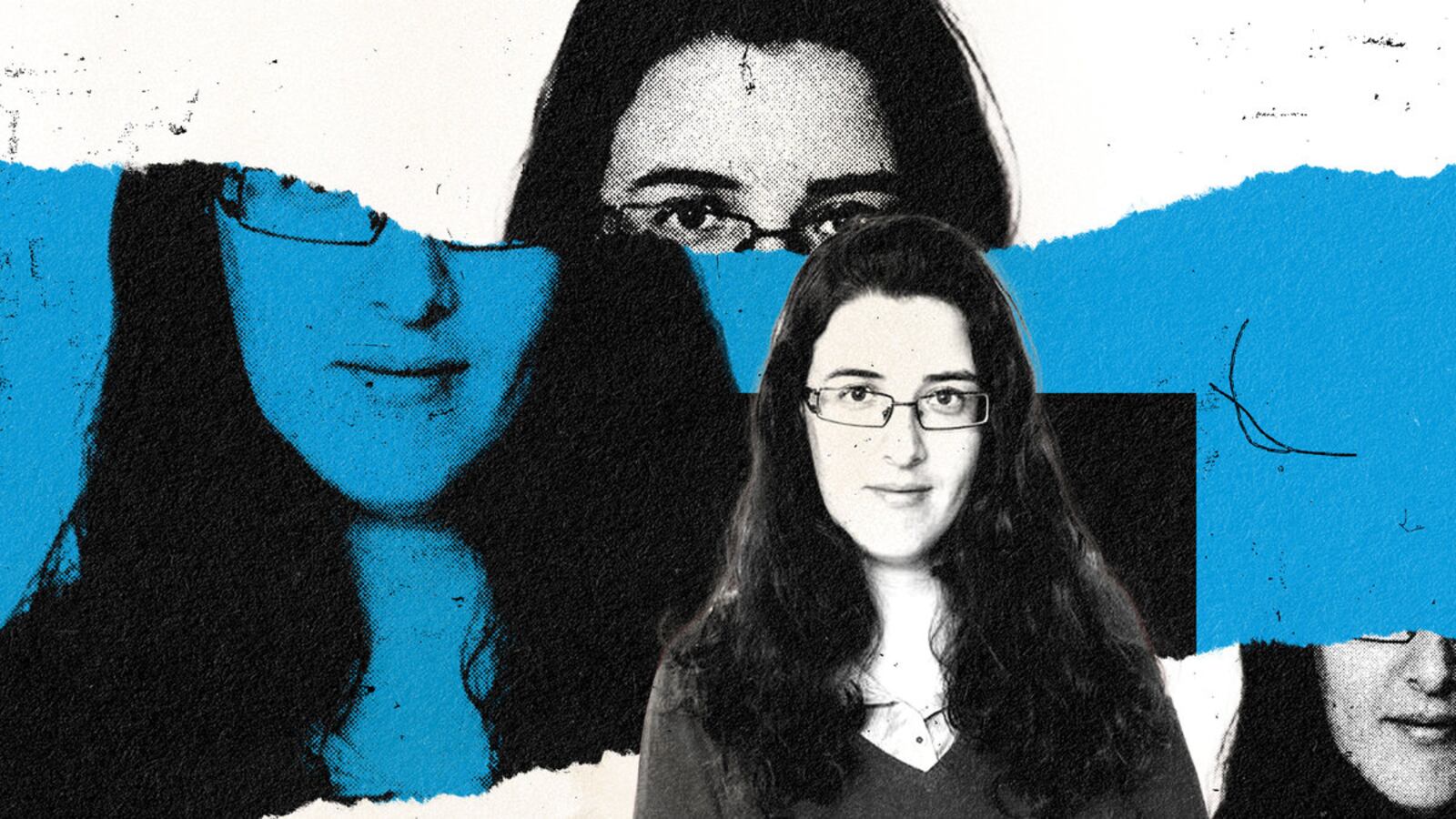Friends and colleagues of Elizabeth Tsurkov, a dual Russian-Israeli citizen who was kidnapped by an Iran-backed militia in Iraq earlier this year, are slamming what they describe as dangerous lies spreading online about the Princeton doctoral student.
Tsurkov, 36, went missing in March after traveling to Iraq on a research trip for her dissertation, Israel’s Prime Minister’s Office said in a statement this week, adding that she was abducted by Kataib Hezbollah, a notorious militia group designated as a terrorist organization by the U.S.
“She is an academic who visited Iraq on her Russian passport, at her own initiative pursuant to work on her doctorate and academic research on behalf of Princeton University in the U.S.” the Wednesday statement said. “Elizabeth Tsurkov is still alive and we hold Iraq responsible for her safety and well-being.”
But now, friends, peers, and others who follow Tsurkov’s work are speaking out against the tidal wave of social media attacks on the academic—which range from criticizing her decision to travel to Iraq as an Israeli citizen to accusing her of operating as an Israeli spy.
“I am disgusted and appalled by those attacking Elizabeth and using this as an opportunity to spread complete lies about her,” Gary Spedding, a human rights activist who has been friends with Tsurkov for over a decade, told The Daily Beast. “The people trying to defame her and smear her are aware of how precarious her situation is… It’s absolutely horrific, infuriating. They are disgusting cowards, and they really know exactly what it is they’re doing. They seem gleeful about it and it’s shameful, absolutely shameful.”
Spedding, who met Tsurkov in 2012 and has worked with her on several human rights projects in support of Palestinian refugees, said he maintained contact with the researcher even after he was banned from entering Israel in 2014. (The Israeli government reportedly deemed Spedding a “security risk” for his involvement in organizing a student protest against an Israeli lecturer in the U.K.)
“It’s absolutely horrifying. I was truly panicked and very upset that this is now a massive news piece. It’s such a horrific situation. She’s not just got detractors who are criticizing her for being a potential spy: she’s also got right-wing Israelis who despise the fact that she supports Palestinian rights calling her a traitor, and saying the Israeli government shouldn’t bother helping her. It’s all absolutely disgraceful,” he said.
Tsurkov’s online critics have pointed to tweets from more than 10 years ago—and her apparent conscription in the Israeli military’s intelligence unit in 2006—to bolster theories that the researcher was traveling to Iraq as a spy.
Spedding and others who spoke to The Daily Beast described such claims as “completely ridiculous and offensive,” citing her history of criticism of Israeli government policies and her consistent support of Palestinian rights in recent years.
“People have that ability to progress and change and grow. And Elizabeth certainly has grown. To suggest that something from 2009, 2010 is representative of her views today? It completely erases all her hard work,” Spedding said.
Robin Yassin-Kassab, a Middle East expert familiar with Tsurkov and her work, raised similar points about Tsurkov’s activism in the region.
“She was somebody who openly criticized Israeli policy… and she was working for justice and equality throughout the region. Ultimately, people like her are a benefit to the region and to the people in it,” he told The Daily Beast, adding that he was “appalled” by some of the comments made about Tsurkov in the aftermath of her kidnapping.
“The people who’ve kidnapped her are monsters who’ve committed huge crimes against the Arab peoples of Iraq, Syria, Yemen, Lebanon. I hope that we’re all free of them, and I hope that we can get to a situation where people are not targeted just because of their ethnic or national or religious origin,” he said.
A journalist who spoke with The Daily Beast on the condition of anonymity, and who described Tsurkov as a “dear friend,” blasted the spying allegations against Tsurkov as “seriously repugnant and inhumane.”
“Picking out of context tweets from over a decade ago to smear her… she already answered these same false accusations years ago to the exact same people,” the journalist said, referring to social media posts from Tsurkov explaining that she was “raised by very right-wing parents.”
Dimi Reider, another journalist who has consulted with Tsurkov as an expert source in his reporting, described Tsurkov as “a fierce, committed, unflinching critic of the Israeli government and its practices, and particularly the atrocities it carries out against Palestinians.”
Speaking with The Daily Beast, he said that although he understands why most Palestinians won’t have much sympathy for Tsurkov, especially without knowing her well, “what’s been deeply concerning here is the ease and breeziness with which people who really should know better—academic, journalists and activists who have at the very least minimal knowledge of the region—have been speculating about her being ‘a spy.’”
“There is zero evidence of this being the case,” he said in a message to The Daily Beast. “But her abductors and their paymasters read Twitter as much as anyone, and this unsubstantiated narrative being allowed to settle can have very direct implications for her safety—and even for her survival.”
Tsurkov’s loved ones, meanwhile, have maintained that the researcher understood the risks that came with her visit to Iraq.
“Of course she had concerns. She understood only too well the regional geopolitical sensitivities. She used to tell me that she was managing the risks by taking precautions,” Tsurkov’s sister, Emma, said in an interview with Al-Monitor. “She always calculated the risks of her fieldwork. She did not meet with any militia members, only with regular people.”
Referring to the decision not to go public with news of Tsurkov’s disappearance earlier, Emma told the outlet that the family “hoped we could reach a quick and quiet solution to this situation without it becoming an international sensation. We were not silenced. It was our choice.”
On Friday, an Iraqi government spokesperson announced that an investigation had been opened into Tsurkov’s kidnapping, but declined to offer more information in a statement to the Associated Press.




